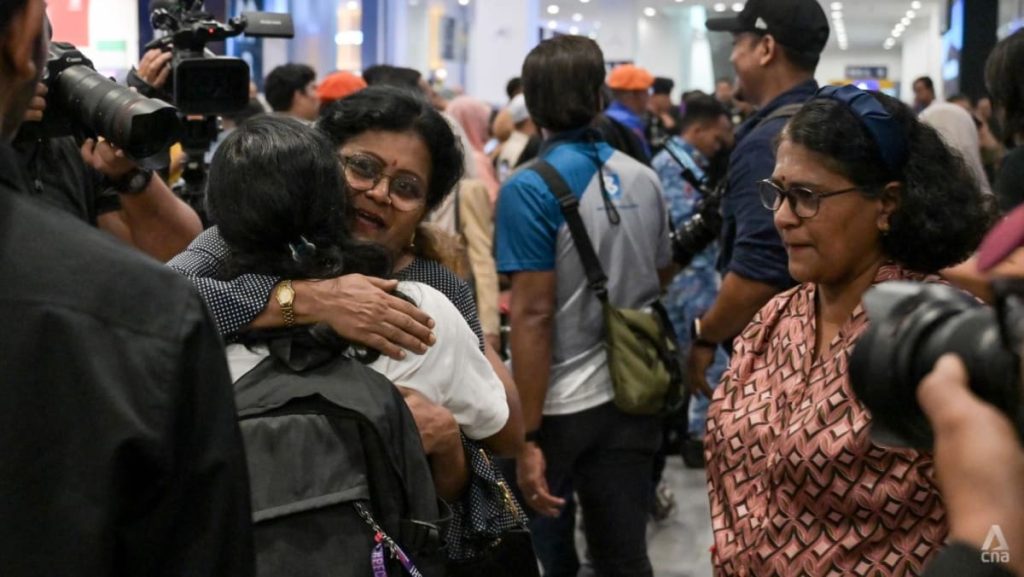Both parties involved in the recent violence have been trading blame for the situation, which ultimately led to an unprecedented communications blackout in Bangladesh. This blackout included the shutting down of internet services and restrictions on phone calls. Before the Malaysians arrived to evacuate their citizens, a father named Mr Mahmudin Abas, expressed concern for his daughter Noorfaizzah, a final-year medical student at Mymensingh Medical College. Noorfaizzah had planned to fly back to Malaysia on Thursday but was forced to stay in Bangladesh due to the dangerous situation caused by the protests.
Noorfaizzah informed her father that she was trapped indoors as clashes were taking place nearby, and she had not stocked up on enough food as she had not planned to stay for an extended period of time. Feeling panicked about his daughter’s safety, Mr Mahmudin, along with other parents of Malaysian students, sought help from the Ministry of Foreign Affairs. While authorities initially did not decide to charter a flight to evacuate the students, they eventually agreed to bring them home as quickly as possible. Thankfully, Mr Mahmudin received confirmation that his daughter had managed to board the evacuation flight and was physically fine.
Another parent, Dr Fadli Hamid, expressed the urgency of the situation stating that they could not leave their children hanging amidst rising food prices and reports of student deaths due to the protests. The parents decided to take action after learning that some students at Mymensingh Medical College had died during the protests. Despite accusations that the government did not act fast enough, Foreign Minister Saifuddin defended the evacuation operation by emphasizing that 123 Malaysians had arrived home safely. He stated that a special flight was sent to bring them back safely, and the evacuation operation was carried out smoothly.
The escalation of violence in Bangladesh triggered concerns among parents of Malaysian students studying there, leading to efforts to evacuate them to ensure their safety. The lack of communication and restricted services during the blackout added to the tension and uncertainty surrounding the situation. The parents’ fears for their children’s safety drove them to seek help from authorities, ultimately resulting in the successful evacuation of Malaysian students from the affected area. The government’s response to the crisis, while facing criticism for perceived delays, focused on the priority of ensuring the safe return of its citizens.
The unprecedented nature of the communications blackout in Bangladesh created challenges in coordinating the evacuation process and maintaining contact with those affected by the situation. The efforts of the parents and authorities to ensure the safety of Malaysian students in the midst of violence reflect the importance of swift and decisive action in times of crisis. The successful evacuation of the students, despite initial challenges, highlights the importance of collaboration and communication between different parties involved in emergency response situations. As the situation continues to unfold, there is a need for ongoing support and assistance for those impacted by the violence and its aftermath.


